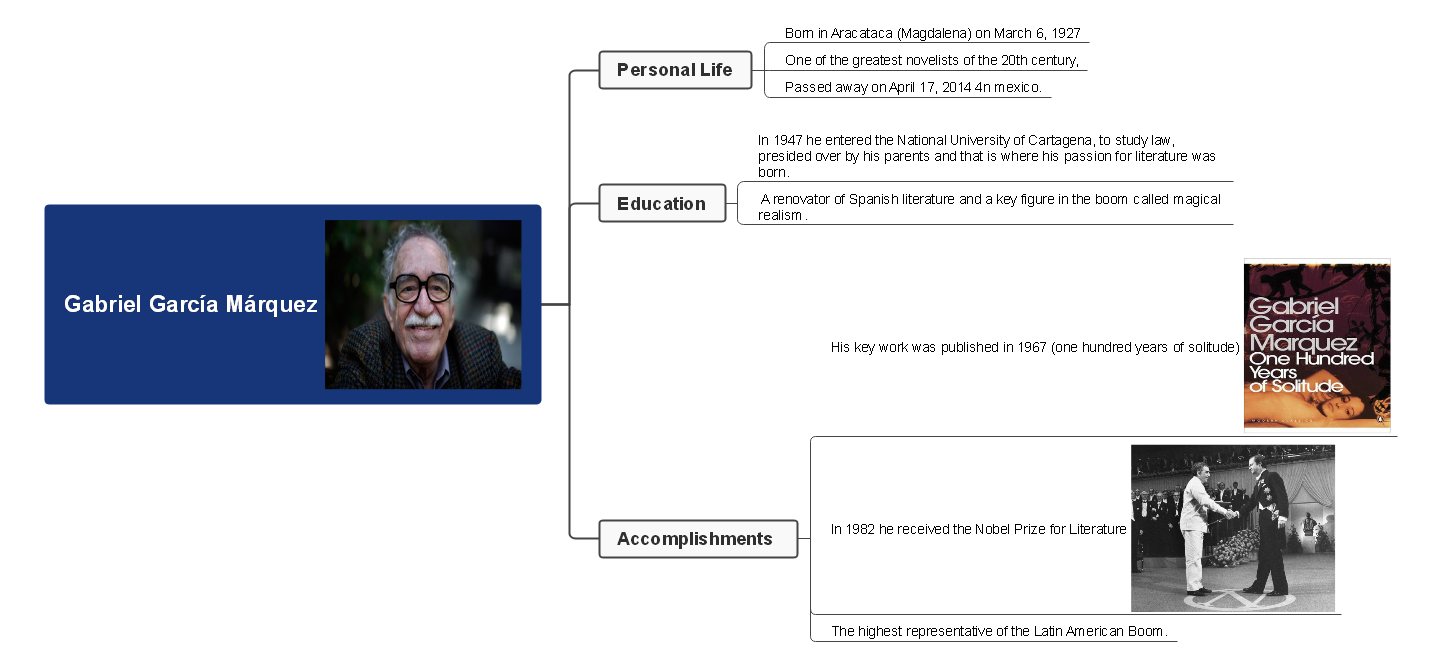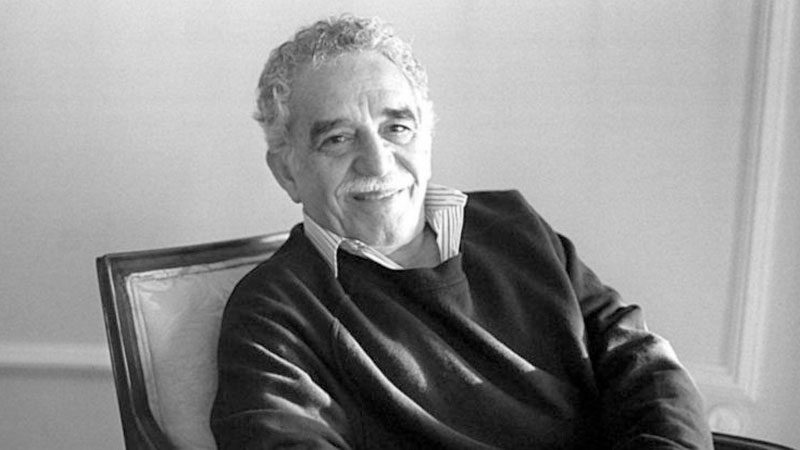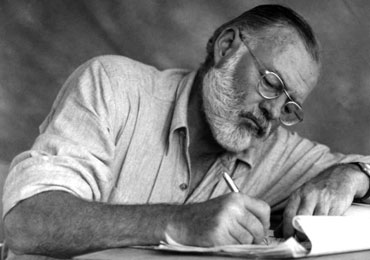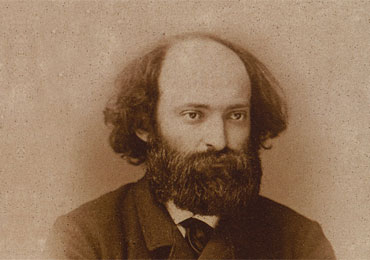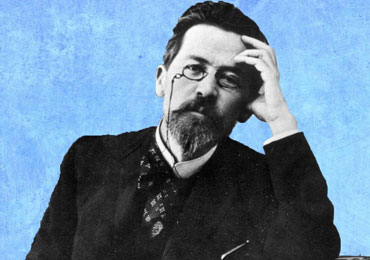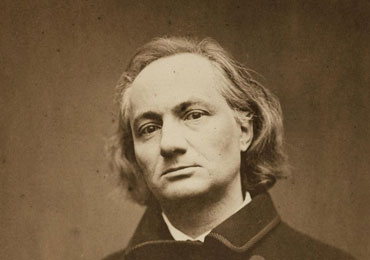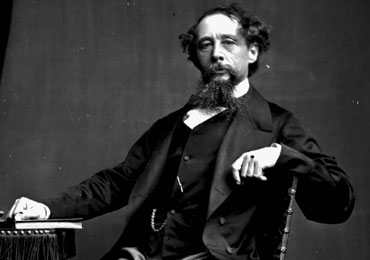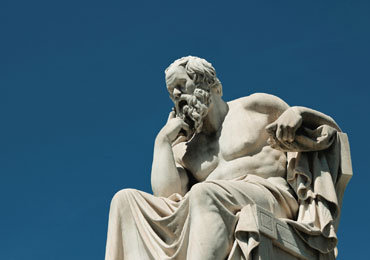Gabriel García Márquez (Biography, Books, Facts, & Mind Maps)
Gabriel García Márquez was a well-known and one of the most respected and famous Columbian author, screenwriter, and columnist, brought into the world on sixth March 1927 out of a humble community, Aracataca, Columbia. His granddad raised him, 'papalelo,' a resigned armed force Colonel whom Marquez called his umbilical rope with history and reality. The Colonel was a major motivation for Marquez for the duration of his life. He showed Marquez all that there was to think about governmental issues and helped shape his philosophical standpoints. Marquez's grandma was additionally similarly associated with his childhood. He was making the most of her anecdotes about magic and his parent relationship undertakings in a vacant style which was the wellspring of the motivation of Marquez's most notable novel, One Hundred Years of Solitude, around thirty years after the fact.
Marquez took a crack at the University of Cartagena to examine the law. Composing for some neighborhood papers, for example, 'El Universal' in Cartagena and 'El Heraldo' in Barranquilla, Marquez started a vocation in news coverage while carrying him to the furthest limit of his law considers.
Early Life
He was the oldest of 12 youngsters; his dad was a postal assistant, transmit administrator, and pharmacist. When Gabriel was 8, his father transferred from Columbia to find a new job. He left him in Columbia with his maternal grandfather, who raised him. His granddad Nicolas Márquez was a well-known activist, a liberal extremist, and a colonel during Columbia's in the Thousand Days of War; his grandma believed in sorcery and filled Marquez's head with odd notions and cultural stories, moving phantoms and spirits.
In a meeting distributed in 1973, The Atlantic, Gabriel García Márquez once stated he had consistently been an author. Positively, the entirety of his childhood components was entwined into the fiction of García Márquez's, a mix of the well-written plot revolves around the history and secret and governmental issues that Chilean artist Pablo Neruda contrasted with Cervantes' Don Quixote.
Writing Work
Gabriel García Márquez studied at a Jesuit school and, after that, García Márquez's fiction he started reading and preparing for the National University of Bogota in1946 for the law department. When the editorial manager of the well-known liberal Columbian magazine named "El Espectador" composed an assessment piece, Colombia lacked quality and gifted youthful journalists. García Márquez sent him stories with determination, which the supervisor distributed as Eyes of a Blue Dog. In the accompanying tumult, García then left Columbia for good and turned into a writer and insightful columnist in the Caribbean island's locale, a job he could never surrender.
After Colombia
In 1954, García Márquez published a report about a mariner who endured a Navy of Columbia destroyer's wreck. Albeit the disaster area had been credited to a tempest, the mariner announced that seriously stowed unlawful stash from the U.S. came free and thumped almost eight of the people over the edge. The subsequent outrage prompted García Márquez's outcast towards Europe, where he kept composing stories, fiction novels, news, and magazine articles.
In 1955, he released his very first novel, Leaf Storm, which was distributed: it was composed seven years sooner; however, he was unable to discover a distributor up to that point.
Marriage and Family
García Márquez wedded beautiful women in 1958, named Mercedes Pardo. With her, he had two kids: Rodrigo, brought into the world in 1959, presently a T.V. and movie chief in the United States. Gonzalo, brought into the world in Mexico in 1962, presently a visual originator.
One Hundred Years of Solitude (1967)
García Márquez had this thought for one of his most recognized and popular works while he was on the road driving his car from Mexico City to Acapulco. While writing his book, he waited for a year and a half while his family strayed into the red. Yet toward the end of the novel, he had many written pages, almost 1,300 pages original copy. The main Spanish released and went out of stock in seven days, and throughout the next 30 long years, it sold more than 25 million duplicates and was already being converted into more than 30 dialects.
The book's writing revolved around the Macondo, a village dependent on his neighborhood of Aracataca. Its adventure followed five ages of relatives of José and his better half Ursula and the city they established. José depend on Márquez's own granddad. Occasions in the book incorporated a plot of sleep deprivation, phantoms that developed old, a minister who suspended whenever he had hot cocoa, a lady who climbed into paradise whenever he did the laundry and clothing, and a downpour that kept going four years.
In a 1970 audit of the English adaptation, in The New York Times by Robert Kelly, said it was a book "so loaded up with an amazing plot, detailing and humor with rich and alarming contortion that it infers the most amazing aspect Faulkner and Grass."
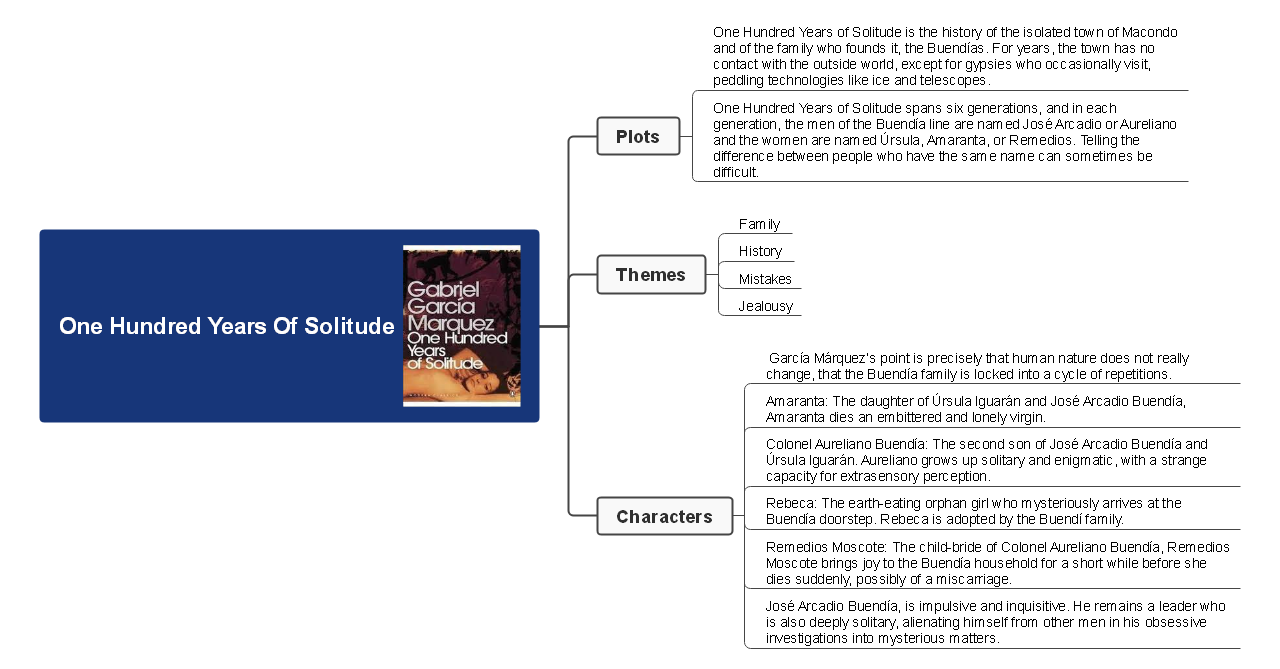
Facts About García Márquez
1. He had a substantial interest in legislative issues and was a dedicated communist
Likely affected by his granddad ("the Colonel"), Marquez had an unequivocally liberal, hostile settler perspective, which made himself clear in his political compositions. He vocally contradicted various Latin American autocracies and was even present in Caracas for the 1958 overthrow that expelled Venezuelan despot Marcos Pérez Jiménez.
2. Therefore, he was marked rebellious in the United States.
Marquez's political perspectives, particularly his reactions to what he saw as American colonialism, acquired him the United States government's fury. He has efficiently kept visas until the political race from getting Bill Clinton. The latter lifted the boycott, apparently at any rate partially because One Hundred Years of Solitude was one of his number one books.
3. Throughout the long term, he kept a kinship with Fidel Castro.
On second thought, his kinship with Castro (which started following One Hundred Years of Solitude shot Marquez to worldwide fame) presumably didn't help him with the U.S. State Department. All things being equal, the two had a "nuanced" relationship for a long time that was however much artistic as it seemed to be political.
4. A dark Mexican ventriloquist's sonnet was distributed under Marquez's name.
In 2000, Marquez was fighting malignant growth. However, the illness was ready to reduce; Peruvian every day La Republica distributed a tale about his chronic infirmity joined by what they guaranteed was a goodbye sonnet composed by the writer himself. Various papers got the story to avoid anything related to sites and radio broadcasts, and an overflowing of public pain and recognition resulted. There were just two issues with the story: Marquez's wellbeing was improving (he would get by until 2014), and his supposed goodbye sonnet was a (hackish, antique loaded) work by dark Mexican ventriloquist Johnny Welch, who had composed the sonnet to his manikin, Moles.
5. He never let anybody adjust One Hundred Years of Solitude into a film.
Since, in his words, "(t)hey would project somebody like Robert Redford and the greater part of us don't have family members who resemble Robert Redford."
Death
In 1999, Gabriel García Márquez was diagnosed to have lymphoma. However, He kept on composition until 2004, when surveys of "Recollections of My Melancholy Whores" were blended—it was restricted in Iran. He gradually sank into dementia from that point forward after leaving Mexico City on April 17, 2014.
García Márquez carried world regard for the Latin American abstract scene, set up an International Film School close to Havana and a school of newscasting on the Caribbean coast.
